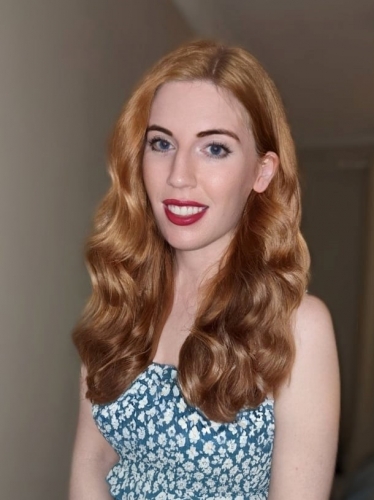For Genea Australia fertility nurse, Jill Briggs, working with couples on their journey to parenthood and sharing some of the happiest moments of their lives is the most rewarding part of her job.
“You might see a couple when they first come in and they're still not sure exactly what's causing their fertility issue”, she told
HealthTimes.
Subscribe for FREE to the HealthTimes magazine
“So, you get to be part of the team helping uncover what's happening for them, seeing them through their treatment cycles as well, and then being able to share hopefully some really happy news with them at the end that they're pregnant. It's an extra special treatment.”
“Sometimes, a few months later, you'll get a visit from the couple with their baby and that reminds you why you're here and why you’re doing this”, said Ms Briggs.
While Ms Briggs has many fond memories that have stayed with her, it’s the journeys of couples who have experienced immense heartbreak that are particularly special.
FEATURED JOBS
Apex Radiology - Australia
St Vincent's Care Services
Frontline Health Auckland
“We have couples coming through who have, sadly, already had a child born who they find out has a life limiting illness or condition that they didn't realize that they, as parents, were carriers for.”
“At Genea, we're able to offer genetic testing of embryos or pre-implantation genetic diagnosis: PGD. In fact, we helped pioneer day five embryo biopsies that they use for this testing.”
“This means that there is an opportunity for couples to have future embryos tested for the condition that they didn't know that they had before, and it means that they have the comfort of having an embryo transfer and a pregnancy knowing they're not going to go through the same heartbreak that they had beforehand.”
“I mean it when I say that every person and their journey is so important to us, but I think there's a big sense of pride in being involved in that testing process and knowing that we can help avoid certain conditions causing heartbreak for families and for future generations.”
When it comes to a typical day as a fertility nurse – Ms Briggs says there isn't such a thing, which is something she relishes.
“One of the things I love about fertility is that there isn't a typical day. There's always variety and every day is a little bit different.”
“But some days I might start my shift by seeing patients in the clinics for blood tests and ultrasounds to track their progress in a cycle.”
“Then I might move to assisting the doctors with their clinic patients. And with that, it's great - you're a little bit of a detective helping to gather the pieces of the puzzle, finding out if there's any issues with their fertility, and providing patient education.”
“Other days, I might be answering patient inquiries on the phone or email, helping people with questions or those who might be experiencing an issue or a concern.”
“Sometimes people just need someone to talk to and that's the nice part of the role as well.”
“Then, I might move to performing procedures such as intrauterine insemination or assisting the team with embryo transfers.”
Inevitably, on the flip side of the wonderful, good news she gets to deliver as a fertility nurse, there are sad days.
“Sharing pregnancy news is always rewarding, but yeah, the reality of the job is that it's not always happy news for everyone", Ms Briggs explained.
“Of course, it’s very difficult for the couple, but it also is for us as nurses and the whole team.”
“We get so invested in a cycle and these people's journey, so to have bad news at the end of it can be really difficult.”
“But we're lucky in that we can develop a rapport with people and a relationship because of the regular contact, which means that hopefully we can be considered as part of their support network and can help them through that”.
Ms Briggs hopes to see more nurses enter the fertility field and for awareness about the specialty to grow.
“It can be really tricky to find information about fertility nursing because it is such a specialty area, and you may not know anyone who has worked in the area before.”
“I would suggest contacting a local fertility centre and seeing if there's a nurse who you can have a chat with.”
“I like to think all of us are really passionate about our job and we're always happy to share it and to tell people what we do.”
“I think being involved in a lot of research and being a technology-driven team means that we're always learning and evolving together”, Ms Briggs said.
“That's definitely something to think about is that you want to be someone who's pretty eager to be learning and to be developing, because things are rapidly changing and advancing in reproductive technology, which is exciting - but it means you've got to keep your finger on the pulse and know what's going on.”













